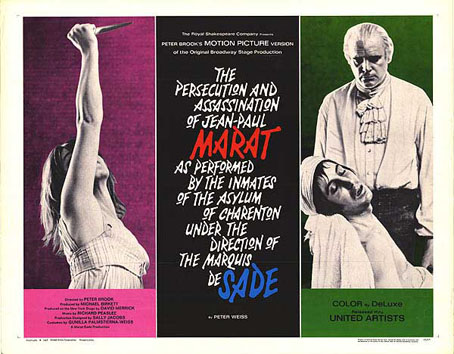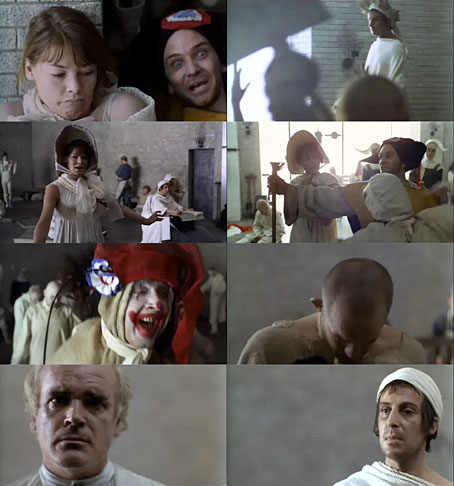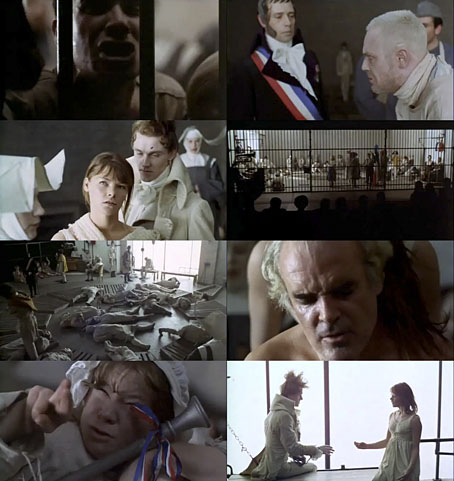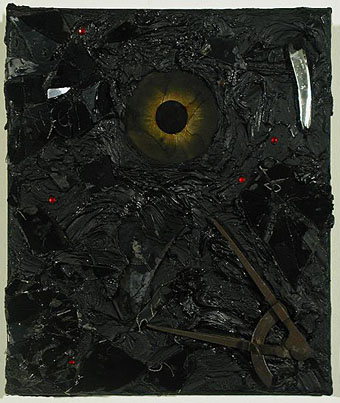
The Marat/Sade (1967).
Good to find this Peter Brook film on YouTube (for the time being…) as I’d been watching Ian Richardson in a couple of things recently and wanted to remind myself of how he fares here. He’s excellent, of course, as the serious foil to Patrick Magee’s equally serious Marquis de Sade. Brook’s film is a recording of his stage presentation of Peter Weiss’s play, in which the two actors embody the poles of a dialogue about the perennially knotty problems of revolution, freedom, and the interests of the individual in the face of political abstractions. What fascinates most about this is the Brechtian nature of the drama: structured as a play-within-a-play (we’re watching the inmates of an asylum performing a fictional Sade drama), and with a proxy audience regarding the performance through iron bars, the staging is as far away from dry theorising as you can get. Brief moments of debate between Sade and the asylum inmate portraying Marat act as punctuations between scurrilous chorus songs and frequent scenes of outright chaos which erupt when the demands of performance become too much for the inmates. It’s loud, sardonic, cynical, and often riveting. One of the more miserable features of drama from the 1960s and 70s is the recurrence of ham-fisted political didacticism which, however well-intentioned, makes for a dismal viewing experience. Weiss’s play shows how well you can deliver political rhetoric when the staging doesn’t ignore the presence of a possibly sceptical audience who might also like to be entertained.
Peter Brook has had a peculiar career as a film director, most of his films being screen adaptations of his stage productions, or odd one-offs such as his documentary-like (and somewhat superfluous) film of Lord of the Flies, and the bizarre Meetings with Remarkable Men. (More about that later.) Brook’s Royal Shakespeare Company staging of the Weiss play was performed to great acclaim in 1965 so we’re fortunate that it’s captured so well here. The cast includes many first-rate actors, not only Richardson and Magee but Glenda Jackson as the inmate given the task of portraying Charlotte Corday, Michael Williams as the Herald, and (easy to miss among the clown-faced chorus) Freddie Jones. A low-grade YouTube copy does little for David Watkin’s superb photography which gives the film a very different look to other films of the 1960s. Studios films of the era tended to be horribly over-lit so it’s refreshing to find a film such as this using only the available light to illuminate the action. Searching around for DVDs reveals a single Spanish edition which I’m tempted to buy if I could be sure it was widescreen and with the English soundtrack intact. As for the play itself, the concerns may be typical of the period but many of the sentiments have lost none of their relevance. Highly recommended.



